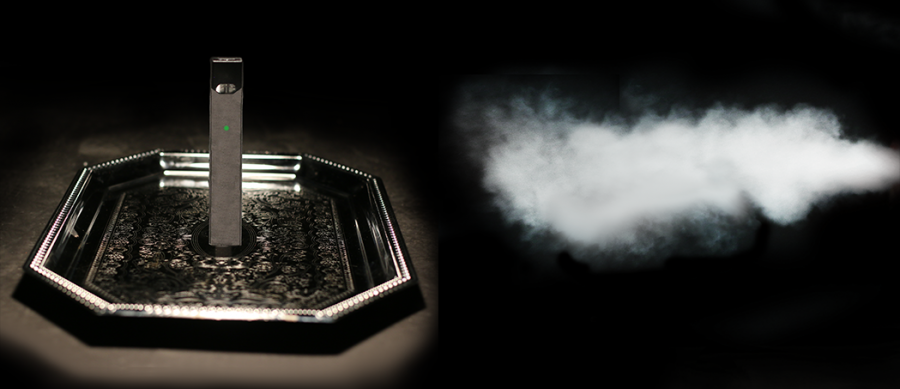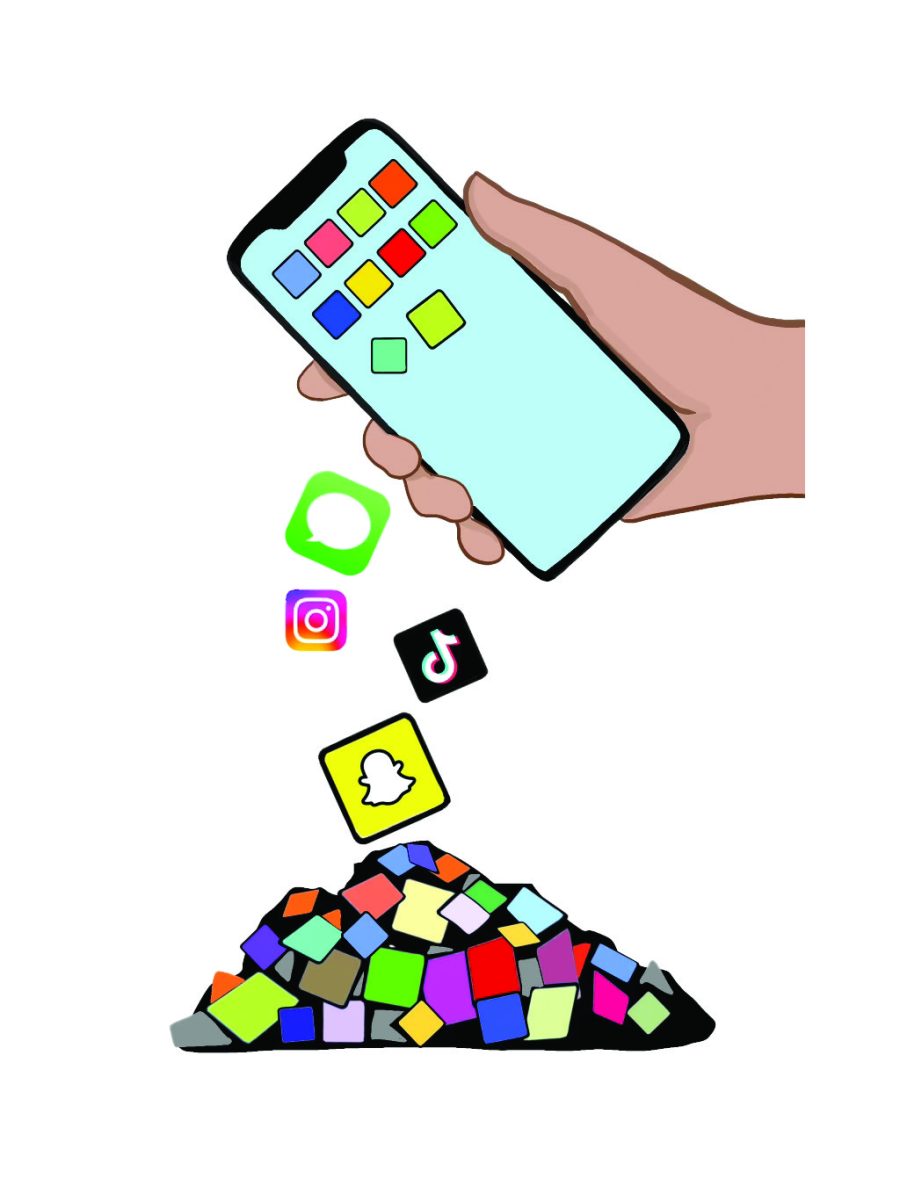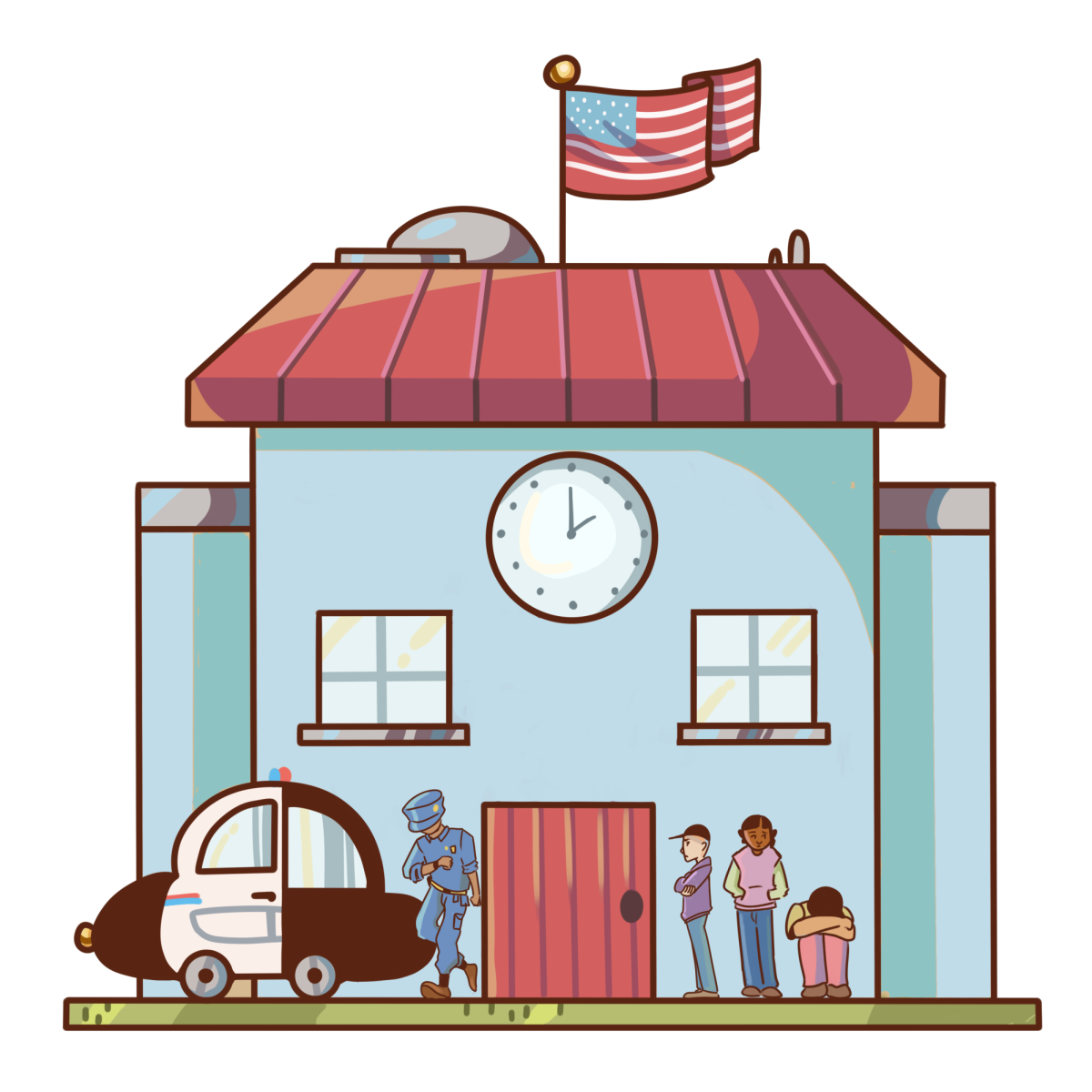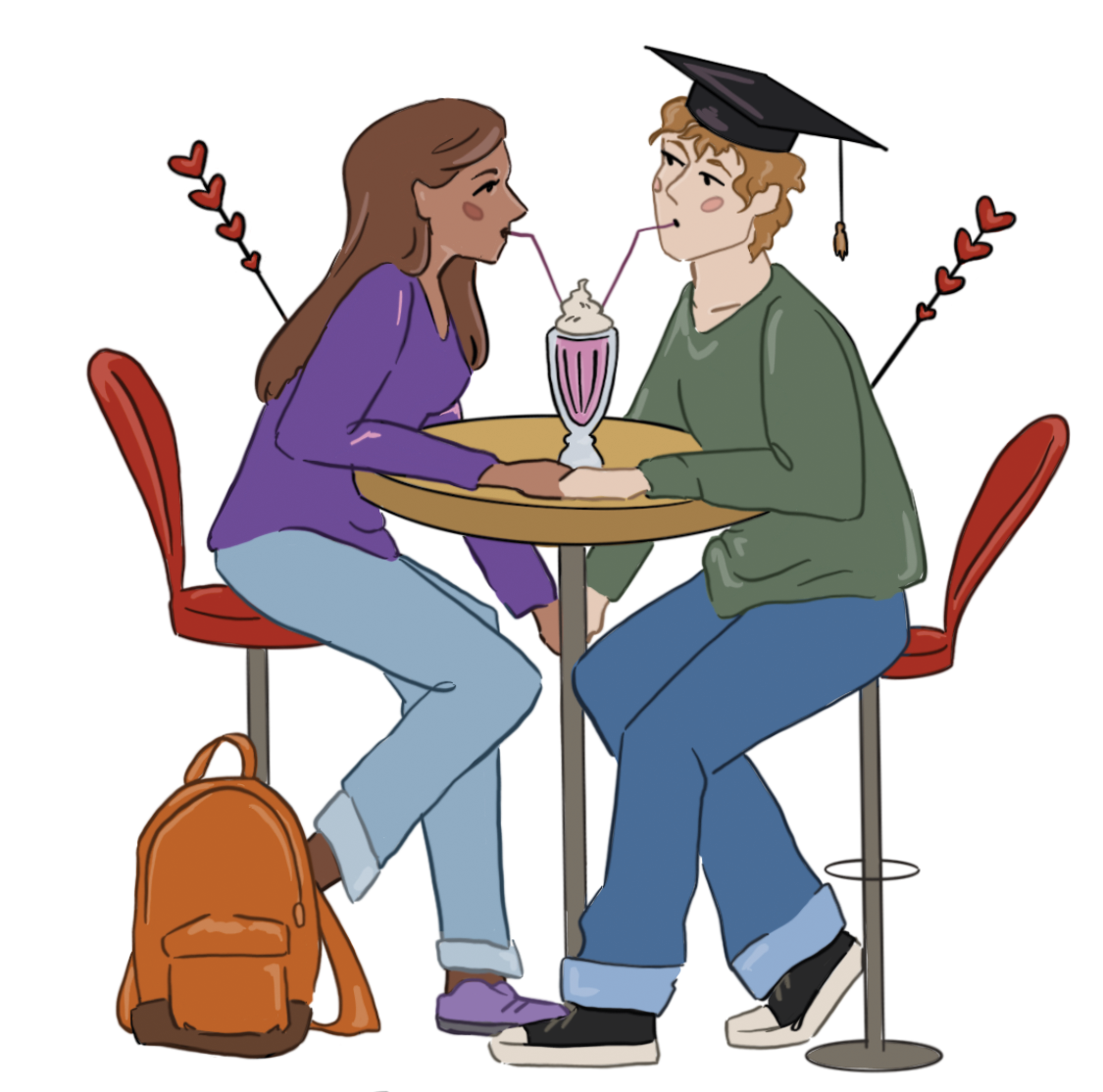Vodka and tequila bottles rested on a basement table. Bongs, vaporizers and weed pens were scattered around the room. It was around 10 p.m. on a Saturday evening, and after a stressful academic week, Bradley* ’18 said he needed to relax.
He had taken a few “pulls” from a weed pen, and he was just beginning to feel its effects. When his friend gestured toward him, unclenched his hand and revealed a grey, rectangular object, Bradley brought it to his lips and inhaled. Thinking it was weed, the sharp sensation and strong minty flavor came as a shock. He couldn’t help but cough.
“It was like a much faster dosage of the smoke going into my lungs than any other substance that I’ve smoked before,” Bradley said. “It sucks up into your throat much more quickly than THC does. It kind of stings the first time.”
Over the course of the evening, however, his initial dislike changed into a more pleasurable feeling.
“Throughout the night, I was taking longer and longer pulls because I was able to stomach it more easily,” he said. “I got a really heavy head-rush, and I felt as if the floor was much further away from my head than it actually was.”
Although Bradley does not regularly JUUL, he said he understands the appeal of the high, to which the slang word “domey” refers to.
“I felt light on my feet, and my head felt kind of heavy,” he said. “When you get [weed] high, you feel relaxed and low to the ground. When you’re domey, everything is in your head. It feels really good.”
Released in June 2015, the JUUL is a rechargeable e-cigarette created by PAX Labs, a company that also sells other vaporizers. Because the JUUL utilizes vaporization to release active ingredients in nicotine, it does not produce heat or smoke.
Removable cartridges, or JUULpods, come in five flavors: mango, mint, virginia tobacco, fruit medley and creme brulee.
The JUUL website claims that, “if you are an adult smoker who has been looking for an e-vapor alternative that can satisfy like a cigarette, then JUUL may be a good choice for you.”
This is how Travis* ’18 began JUULing. Smoking up to two packs of cigarettes a day during the summer, he has since then transitioned to using the JUUL.
“[The transition] was pretty seamless, but it’s still pretty bad. I should probably use it less,” Travis said. “I just did it because my friends at school were giving me shit for smoking.”
He said he uses between a JUULpod in three days or a pack in a day, depending on his stress levels. A pack of JUUL comes with four pods. The JUUL website says that each JUUL pod contains the nicotine content that is equivalent to one pack of cigarettes.
According to Matthew A. Torrington, M.D. (Lex ’18), a board certified Family Medicine physician with a specialty in Addiction Medicine, vaporization theoretically poses fewer risks than smoking.
“When you smoke, you light something on fire and breathe it into your lungs, and there are thousands of chemicals and particles that enter your lungs,” Torrington said. “When you vaporize something, you’re just heating something past the point where they are a liquid to a vapor. That’s theoretically less dangerous for your lungs. But we don’t really know about e-cigarettes, whether the vehicle or delivery systems are safe.”
While Travis said he sought an alternative to smoking, Olivia* ’18 was first exposed to nicotine through JUULing.
She started JUULing in January and said she enjoyed the head rush that made her feel intoxicated for a few moments. Now, when at home, she uses her JUUL every hour and a half or two hours, she said.
“If you’re addicted, you can’t not smoke at school,” she said.
Although Olivia does not plan on smoking cigarettes, according to the National Institute on Drug Abuse, 30.7 percent of teenage e-cigarette users began smoking within 6 months after starting to use e-cigarettes.
Similar to Bradley, her first experiences with JUULing were in a social setting.
“I knew tons of people that had it, and whenever I would hit it, it was like, so amazing,” she said. “It felt so nice. So then, my friend got one when he was in town, and so I used his. Then after he left, I was just like, ‘I’m just going to get my own.’”
Bradley said he believes the JUUL’s popularity is partly due to his idea of the typical student who owns a JUUL.
“Kids are JUULing socially,” Bradley said. “I think the fact that the popular kids at school use it makes it popular. Most of the what you call popular kids have a JUUL, I guess.”
Kyle* ’17, who also regularly JUULs, says it is not difficult to obtain one. Olivia spent $50 at a gas station for her JUUL and Travis got his from a dealer.
“We’re in the valley, and you know, you can pretty much find anything you want here if you put your mind to it,” Kyle said.
Despite the accessibility of JUULs, Torrington said that nicotine is a substance with a short latency between exposure and addiction. Moreover, teenagers are more prone to addiction, he said.
“The part of the teenage brain that helps you control yourself, your brakes as you will, develops more slowly than the part of your brain that activates you and gets you to do stuff,” Torrington said. “Some of these things like alcohol and cannabis impair the ability for your braking system to develop. So, you end up with further eroded brakes that make you more susceptible down the road with impulse control.”
Additionally, Torrington said there is a problem with the lack of regulation on e-cigarettes in general.
“E-cigarettes have a false perception that they’re safer. Though they may be, they’re not a great thing to have in the body,” Torrington said. “Although the FDA [Food and Drug Administration] said they’re going to start regulating them in 2018, no one really knows what that means yet. There is no regulation on e-cigarettes, no laws on how much nicotine they can contain, no clinical trials which are some of the things that make them scary.”
Considering the possible negative consequences of nicotine, Bradley also said that the recent popularity of the JUUL is a shame.
“I know it seems cheesy for me to want my generation to be the one that ends smoking, but the fact that it’s so popular is disappointing,” Bradley said. “No kids are really seeing the long-term effects of it. It’s just irresponsible.”
*Names have been changed.





































